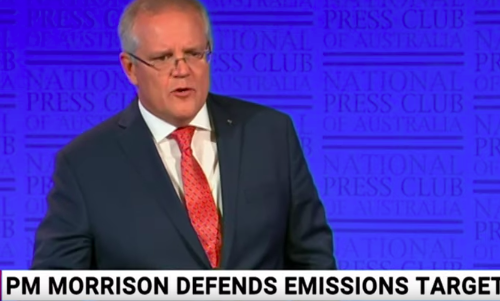E-scooters are the bane of modern civilisation. They are the stealth bombers of our pavements. They are a silent danger to those who ride them, and a threat to life and limb for pedestrians and cyclists forced to share paths and roadways with them. They give accident and emergency departments unwanted business, thus imposing a significant social and financial cost on the wider community.
There is nothing worse than being out for a walk with your young children in a park or on a shared pathway, only to be nearly mowed down by a speeding e-scooter rider you never heard coming, who sounded no warning, and who obviously doesn’t care about anyone else.
Across the West, however, e-scooters are being promoted as a clean, green mode of personal transport. In some places, like London, they are being trialled as vehicles for hire, while they are still illegal to be owned privately for use on public roads and paths. In other places, including my home Australian state of Victoria, they are legal both for hire and private use, with a burgeoning retail market for e-scooters – which are, as a consumer item, not cheap and run into the Australian dollar equivalent of hundreds of pounds to buy.
As in a number of UK cities, including London, Victoria’s capital Melbourne has been running an extensive trial of for-hire e-scooters. The city corporation has contracts with two operators, including the American company Lime which is also involved in UK trials.
Running, that is, until Tuesday night, when Melbourne City Council voted narrowly to tear up the contracts and end the scheme immediately. The two operators now have 30 days to remove their scooters and charging facilities from the city’s bounds.
Melbourne’s Lord Mayor, Nicholas Reece, described the decision as ‘taking the Paris option’ after 2024’s Olympic city did away with the machines last year. ‘After two years of patience, I have run out of patience at what I’m seeing on the streets and footpaths of our city,’ Reece told council meeting before the vote.
‘There are literally more people disobeying the law on e-scooters than are actually following the rules, people riding around without helmets, people double-dinking (carrying more than one passenger), people in groups, riding on the footpath, creating havoc on the footpaths of our city,’ he said.
Reece also could have mentioned the eyesore factor. Just like for-hire bicycles, vended by Lime and other operators, discarded e-scooters and helmets litter the city and suburbs, including finding their way into Melbourne’s Yarra river and Port Phillip Bay.
While four Greens councillors voted to keep e-scooters, claiming their benefits as clean, green urban transport outweigh their problems, most councillors wanted them gone, at the very least when the trial contracts were due to expire. The council’s decision has been greeted warmly by Melbourne’s media and by callers to Melbourne’s talk radio programmes. People hate e-scooters, and their riders who seem to think, as Reece observed, that they can give the proverbial two fingers to road laws and civic regulations, as well as pedestrians.
The issue is a classic example of what the late US politician, Tip O’Neill, said about all politics being local. The decision certainly won’t hurt the Lord Mayor, Nicholas Reece, a well-known figure in Australian Labor party politics. In October he is up for election again, and Reece’s main rival has been campaigning hard on Melbourne’s e-scooter plague – and now is shamelessly taking credit for Reece’s conversion and the city council’s vote.
Besides Green activists, the only people openly upset by the decision are the e-scooter operators themselves, who did their best to make the trials work safely and efficiently, and who are no doubt eyeing how Melbourne’s ban will be seen by London and other cities.
A Lime spokeswoman said, ‘We’re thoroughly disappointed and after all the cooperation with council, this isn’t just a setback for the current operators, but for Melbourne’s transport future’
Oh, please. Getting these micro-juggernauts off Melbourne’s streets and paths is great for Melbourne’s transport future. It will make getting around the city safer, reduce accident and injury risks to both riders and pedestrians, and simply make it more enjoyable for others to walk those streets.
And if those dismounted riders walk instead, they’ll actually get physical exercise and avoid injury.
A recent study by a trauma injury research institute found that there were 1,273 e-scooter related injuries reported by Victoria’s hospital emergency departments in 2023, up from 1,018 in 2022 and 691 in 2021. While people using their own e-scooters still means that broken limbs, and smashed faces and teeth, from e-scooter misadventures and stupidity will continue in Victoria, hire e-scooters, as a source of injury, will disappear. Is that a bad thing, Lime?
Well done, City of Melbourne, for reclaiming our pavements from the e-scooter menace. Hopefully London and other cities around the world will soon ‘take the Melbourne option’ and banish e-scooters altogether. They, and their put-upon residents, won’t regret it.









